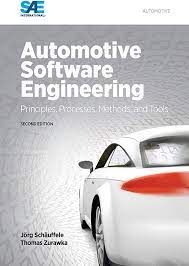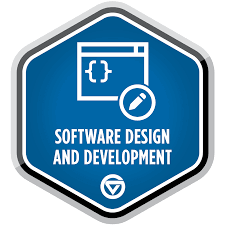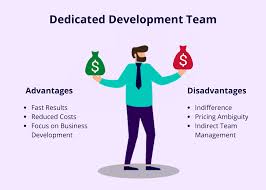Automotive Software Engineering: Revolutionizing the Future of Transportation
In the ever-evolving world of technology, software engineering plays a crucial role in shaping various industries. One such industry that has witnessed a remarkable transformation is automotive engineering. The integration of software systems into vehicles has revolutionized the way we drive, making cars smarter, safer, and more efficient than ever before.
Automotive software engineering encompasses a wide range of applications, from infotainment systems to advanced driver assistance systems (ADAS) and autonomous driving technologies. These software-driven innovations have not only improved the driving experience but also enhanced vehicle safety and efficiency.
One of the key areas where automotive software engineering has made significant strides is in ADAS. These systems utilize various sensors, cameras, and algorithms to assist drivers in avoiding collisions, maintaining lane discipline, and even parking with ease. By analyzing data from multiple sources in real-time, ADAS can provide timely warnings and take corrective actions when necessary.
Furthermore, automotive software engineering has paved the way for autonomous driving technology. Through complex algorithms and machine learning techniques, self-driving cars are becoming a reality. These vehicles can perceive their surroundings using an array of sensors and make informed decisions based on the data they receive. This promises to revolutionize transportation by reducing accidents caused by human error while also improving traffic flow efficiency.
Beyond safety features, automotive software engineering has also transformed our in-car experience. Infotainment systems have become more sophisticated with touchscreens, voice recognition capabilities, and seamless smartphone integration. Drivers can now enjoy hands-free calling, music streaming services, real-time navigation updates, and even access to various apps – all at their fingertips.
However, with these advancements come challenges as well. Automotive software engineers must ensure that these systems are reliable and secure against potential cyber threats. As vehicles become increasingly connected to external networks, protecting against hacking attempts becomes paramount.
Moreover, as the complexity of automotive software increases exponentially with each new feature, engineers face the challenge of optimizing performance and minimizing resource consumption. Balancing functionality with efficiency is crucial to ensure a seamless user experience while also conserving energy.
In conclusion, automotive software engineering has transformed the automotive industry, making vehicles smarter, safer, and more efficient than ever before. From ADAS to autonomous driving technologies and advanced infotainment systems, software-driven innovations continue to shape the future of transportation. As technology continues to advance at an unprecedented pace, automotive software engineers will play a vital role in shaping the next generation of vehicles that will redefine mobility as we know it.
Frequently Asked Questions About Automotive Software Engineering
- Can software engineers work for car companies?
- Which software is used in automotive industry?
- What is automotive software engineering?
- Which is better software engineer or automobile engineer?
Can software engineers work for car companies?
Absolutely! Software engineers play a crucial role in the automotive industry. Car companies rely on software engineers to develop and maintain the software systems that power various aspects of their vehicles. From infotainment systems and navigation software to advanced driver assistance systems (ADAS) and autonomous driving technologies, software engineers are at the forefront of innovation in the automotive sector.
Car companies often have dedicated teams of software engineers who work on developing and improving the software components of their vehicles. These engineers collaborate with other professionals, such as mechanical and electrical engineers, to integrate software seamlessly into the overall vehicle design.
Software engineers working for car companies are responsible for designing, coding, testing, and debugging complex software systems. They work on developing user interfaces, implementing algorithms for various functionalities, and ensuring that the software meets high standards of performance, reliability, and safety.
In addition to developing new features and technologies, software engineers also play a crucial role in maintaining and updating existing software systems. They are involved in diagnosing and fixing any issues or bugs that may arise during testing or after a vehicle has been released into the market.
With the increasing emphasis on connected cars and autonomous driving technologies, car companies are increasingly seeking talented software engineers who can contribute to these cutting-edge developments. As technology continues to advance rapidly in the automotive industry, there is a growing demand for skilled software engineers who can drive innovation and shape the future of transportation.
So yes, if you’re a software engineer with a passion for cars and technology, working for a car company can be an exciting career path where you can contribute your skills to create innovative solutions that redefine mobility.
Which software is used in automotive industry?
The automotive industry relies on a variety of software applications to design, develop, and manufacture vehicles. Some of the key software used in the automotive industry include:
- Computer-Aided Design (CAD) Software: CAD software is used to create detailed 2D and 3D models of vehicles, components, and assemblies. It allows engineers to design and visualize different parts of the vehicle before moving to the manufacturing stage.
- Computer-Aided Engineering (CAE) Software: CAE software enables engineers to simulate and analyze various aspects of vehicle performance, such as structural integrity, aerodynamics, crashworthiness, and thermal management. It helps optimize designs and identify potential issues early in the development process.
- Product Lifecycle Management (PLM) Software: PLM software manages the entire lifecycle of a vehicle, from concept development to manufacturing and maintenance. It facilitates collaboration between different teams involved in design, engineering, supply chain management, and after-sales service.
- Embedded Software: Embedded software refers to the programming code that runs on electronic control units (ECUs) within vehicles. These ECUs control various functions such as engine management, braking systems, transmission control, airbag deployment, and infotainment systems.
- Manufacturing Execution System (MES) Software: MES software helps manage production processes on the shop floor by monitoring real-time data such as inventory levels, equipment status, quality control parameters, and scheduling operations.
- Diagnostic Software: Diagnostic software is used for troubleshooting and identifying issues with vehicle systems during service or repair operations. It connects to onboard diagnostic systems in vehicles to retrieve error codes and provide diagnostic guidance.
- Infotainment System Software: Infotainment systems incorporate various software components like operating systems, multimedia players, navigation systems, voice recognition engines, connectivity modules (such as Bluetooth or Wi-Fi), and application frameworks that enable a wide range of features for entertainment and information purposes within the vehicle.
- Autonomous Driving Software: Autonomous driving software includes perception algorithms, sensor fusion systems, decision-making algorithms, and control systems that enable self-driving capabilities in vehicles. These software components interpret sensor data, make real-time decisions, and control the vehicle’s movements.
It’s important to note that different automakers and suppliers may use a combination of proprietary software and commercial off-the-shelf solutions to meet their specific requirements. The software landscape in the automotive industry is constantly evolving as new technologies emerge, making it an exciting field for innovation and development.
What is automotive software engineering?
Automotive software engineering refers to the specialized field of engineering that focuses on the development, design, and implementation of software systems and solutions for vehicles. It involves creating software applications and algorithms that enable various functionalities within automobiles, ranging from infotainment systems to advanced driver assistance systems (ADAS) and autonomous driving technologies.
Automotive software engineers work on designing and integrating software components into vehicles to enhance their performance, safety, efficiency, and user experience. They collaborate with other professionals in the automotive industry, such as mechanical engineers, electrical engineers, and designers, to develop comprehensive solutions that meet the specific requirements of modern vehicles.
The role of automotive software engineering has become increasingly critical as vehicles have evolved into complex computerized systems. These software-driven innovations allow for features like real-time monitoring of vehicle performance, connectivity with external networks for navigation and entertainment purposes, intelligent driver assistance systems, and even self-driving capabilities.
Automotive software engineers utilize various programming languages such as C/C++, Java, Python, or embedded system-specific languages to develop software applications tailored for automotive environments. They also work with hardware components like sensors, cameras, processors, and actuators to integrate them seamlessly with the software systems.
In addition to developing new functionalities for vehicles, automotive software engineers are responsible for ensuring the reliability and security of these systems. They conduct rigorous testing processes to identify potential bugs or vulnerabilities in the software and implement measures to mitigate risks associated with cyber threats or malfunctions.
Overall, automotive software engineering plays a crucial role in shaping the future of transportation by enabling advancements in vehicle technology. Through their expertise in developing innovative solutions that enhance safety, efficiency, connectivity, and user experience within vehicles, automotive software engineers are at the forefront of revolutionizing the automotive industry.
Which is better software engineer or automobile engineer?
The choice between a career as a software engineer or an automobile engineer ultimately depends on your personal interests, skills, and career goals. Both fields offer unique opportunities and have their own sets of advantages.
Software engineering is a rapidly growing field that offers diverse career options. As a software engineer, you would be responsible for designing, developing, and maintaining software systems and applications. This field is known for its high demand, competitive salaries, and the potential for continuous learning and growth. Software engineers have the opportunity to work on various projects across different industries, not just limited to automotive. They can also work remotely or in flexible environments.
On the other hand, automobile engineering involves the design, development, manufacturing, and maintenance of vehicles. This field combines mechanical engineering principles with electrical and electronic systems to create innovative automobiles. Automobile engineers work on various aspects such as engine design, vehicle dynamics, safety systems, emissions control, and more. This field offers opportunities to work with cutting-edge technologies in the automotive industry.
Both fields require strong problem-solving skills and attention to detail. However, software engineering tends to focus more on coding languages and software development methodologies while automobile engineering emphasizes mechanical principles and understanding vehicle systems.
To make a decision between these two careers, consider your interests in technology versus physical systems. If you enjoy programming languages, working with algorithms and data structures, and have a passion for creating software solutions that can be applied across different industries beyond just automotive, then software engineering may be a good fit for you.
On the other hand, if you are fascinated by automobiles specifically – their design, performance optimization, safety features – and enjoy working with mechanical systems alongside electrical components within vehicles themselves or within the automotive industry as a whole; then automobile engineering might be the path worth pursuing.
Ultimately it’s important to research both fields thoroughly to understand their specific requirements, job prospects in your area or desired location(s), potential salary ranges based on experience levels etc., and consider which aligns better with your skills, interests, and long-term career goals.




